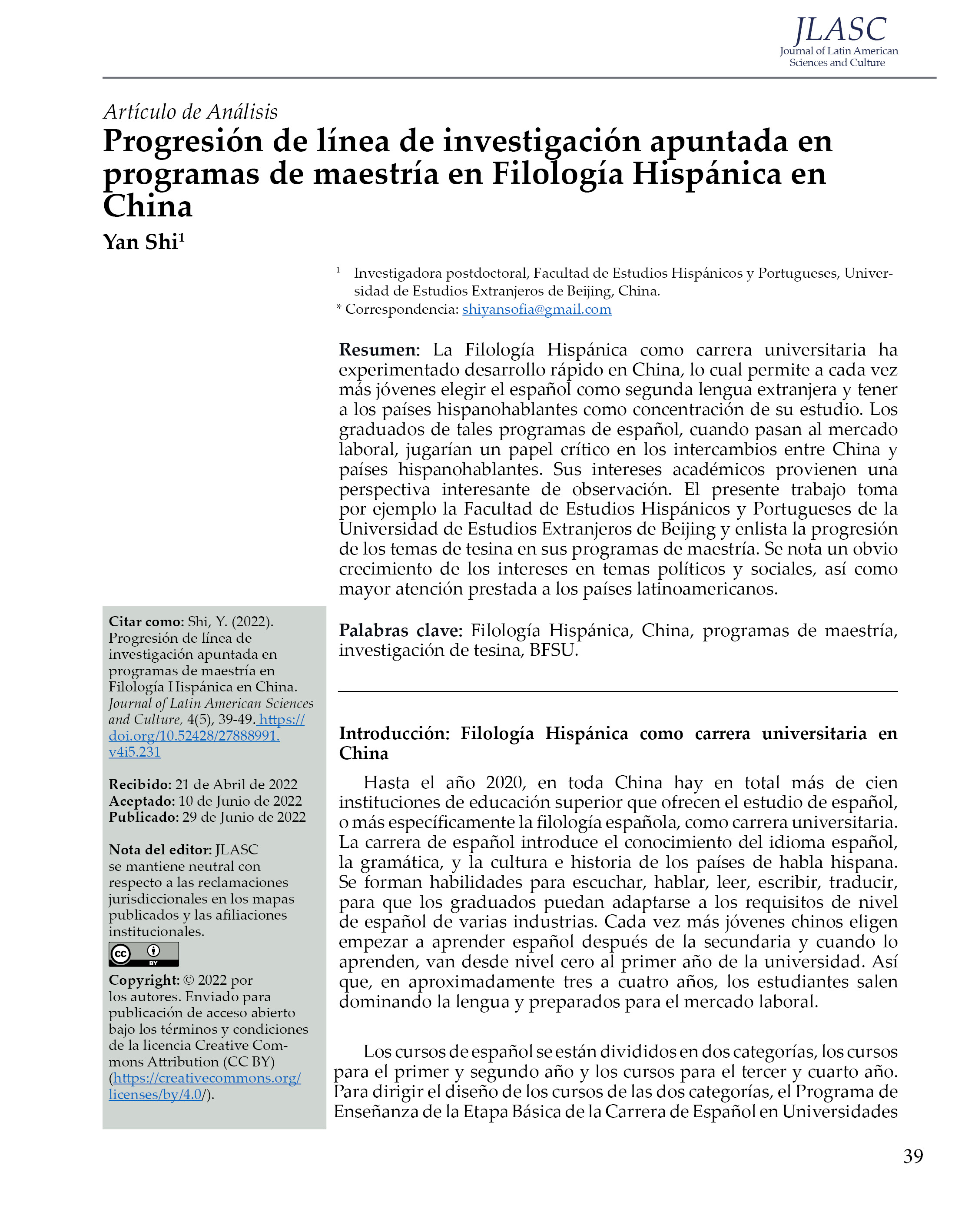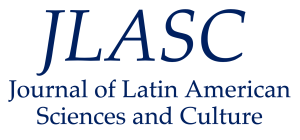Progresión de línea de investigación apuntada en programas de maestría en Filología Hispánica en China
DOI:
https://doi.org/10.52428/27888991.v4i5.231Palabras clave:
Filología Hispánica, China, programas de maestría, investigación de tesina, BFSUResumen
La Filología Hispánica como carrera universitaria ha experimentado desarrollo rápido en China, lo cual permite a cada vez más jóvenes elegir el español como segunda lengua extranjera y tener a los países hispanohablantes como concentración de su estudio. Los graduados de tales programas de español, cuando pasan al mercado laboral, jugarían un papel crítico en los intercambios entre China y países hispanohablantes. Sus intereses académicos provienen una perspectiva interesante de observación. El presente trabajo toma por ejemplo la Facultad de Estudios Hispánicos y Portugueses de la Universidad de Estudios Extranjeros de Beijing y enlista la progresión de los temas de tesina en sus programas de maestría. Se nota un obvio crecimiento de los intereses en temas políticos y sociales, así como mayor atención prestada a los países latinoamericanos.
Descargas
Citas
郑书九,刘元祺,王萌萌.全国高等院校西班牙语专业本科课程研究:现状与改革[J].外语教学与研究,2011,43(04):574-582+640-641.
谭博.以就业为导向的西班牙语人才培养模式探究[J].文教资料,2020(28):118-120.
Beijing Foreign Studies University Degree Thesis Management System. https://webvpn.bfsu.edu.cn/https/77726476706e69737468656265737421fcfe43982e237b556c1c88b8915a2d7b3199baf4fa885db9fed2dc/

Archivos adicionales
Publicado
Cómo citar
Número
Sección
Licencia
Derechos de autor 2022 Journal of Latin American Sciences and Culture

Esta obra está bajo una licencia internacional Creative Commons Atribución 4.0.
Authors who publish in this journal agree to the following conditions: Authors retain copyright and grant the journal the right of first publication, with the work licensed under a Creative Commons Attribution 4.0 International License, which allows others to use the published work provided they acknowledge the authorship and initial publication in this journal. Authors may enter into separate, additional contractual agreements for the non-exclusive distribution of the version of the article published in this journal (e.g., posting it to an institutional repository or publishing it in a book), provided they clearly indicate that the work was first published in this journal. Authors are permitted and encouraged to share their work online (e.g., in institutional repositories or on personal websites) before and during the manuscript submission process, as this can lead to productive exchanges and increased and faster citation of the published work.








